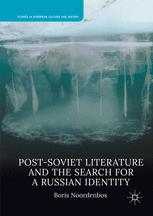

Most ebook files are in PDF format, so you can easily read them using various software such as Foxit Reader or directly on the Google Chrome browser.
Some ebook files are released by publishers in other formats such as .awz, .mobi, .epub, .fb2, etc. You may need to install specific software to read these formats on mobile/PC, such as Calibre.
Please read the tutorial at this link: https://ebookbell.com/faq
We offer FREE conversion to the popular formats you request; however, this may take some time. Therefore, right after payment, please email us, and we will try to provide the service as quickly as possible.
For some exceptional file formats or broken links (if any), please refrain from opening any disputes. Instead, email us first, and we will try to assist within a maximum of 6 hours.
EbookBell Team

4.3
88 reviewsThis book examines a wide range of contemporary Russian writers whose work, after the demise of Communism, became more authoritative in debates on Russia’s character, destiny, and place in the world. Unique in his in-depth analysis of both playful postmodernist authors and fanatical nationalist writers, Noordenbos pays attention to not only the acute social and political implications of contemporary Russian literature but also literary form by documenting the decline of postmodern styles, analyzing shifting metaphors for a “Russian identity crisis,” and tracing the emergence of new forms of authorial ethos. To achieve this end, the book builds on theories of postcoloniality, trauma, and conspiracy thinking, and makes these research fields productively available for post-Soviet studies.